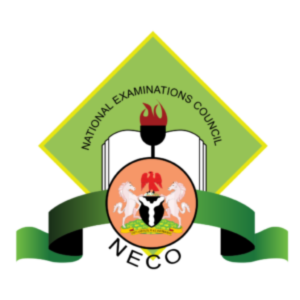With free NECO previous questions, you can ace your exams. Using previous exam questions allows you to become more comfortable with the exam format, identify your strengths and weaknesses, learn crucial ideas, improve time management, and raise your confidence. Access previous questions from various subjects to properly prepare for and excel in the NECO. Do you want to get a good score and get into your dream university? You’ve come to the right place. Below are NECO Government Questions and Answers.

Government NECO Questions and Answers
1. Citizenship can be acquired by
A. Nationalism
B. Indigenization
C. naturalization
D. Communalism
ANSWER: A (Nationalization)
2. In the unitary system of government, power is derived from
A. a rigid constitution
B. the judiciary
C. the executive head of state
D. one source of authority
ANSWER: D (one source of authority)
3. The power allocated to the central government in a federation is primarily contained in the
A. Central legislative list
B. exclusive legislative list
C. residual legislative list
D. concurrent legislative list
ANSWER: B (Exclusive legislative list)
4. A constitution is said to be rigid if it
A. can only be interpreted by the military
B. is written by difficult authors
C. cannot be amended by the executive
D. has cumbersome provisions for its amendment
ANSWER: D (has cumbersome provision for its amendment)
5. Which of the following political parties in Nigeria formed the opposition in the House of Representatives during the First Republic
A. NCNC and AG
B. NCNC and UMBC
C. NPC and AG
D. AG and UMBC
ANSWER: D (AG and UMBC)
6. Red-tapism in the civil service refers to
A. the use of red tape in document
B. slowness of action
C. the cooperation between civil servants and politicians
D. the politicization of the civil service
ANSWER: B (slowness of action)
7. One of the functions of political parties is to
A. make laws
B. declare a state of emergency
C. interpret the constitution
D. aggregate interest
ANSWER: D (aggregate interest)
8. Africa became the center-piece of Nigeria’s foreign policy under the regime of
A. Tafawa Balewa
B. Yakubu Gowon
C. Murtala Muhammed
D. Shehu Shagari
ANSWER: C (Murtala Muhammed)
9. Which of the following is not an OPEC member state?
A. Nigeria
B. Indonesia
C. Venezuela
D. Ghana
ANSWER: D (Ghana)
Read Also!!
- NECO Computer Studies Questions and Answers
- NECO History Questions and Answers
- NECO Economics Questions and Answers
- NECO English Language Questions and Answers.
- NECO Tourism Questions and Answers
10. Which of the following is permanent in international politics?
A. Bilateral relationship
B. Economic Aid
C. Friendship
D. Permanent interest
ANSWER: A (Bilateral relationship)
11. The main industrial cities in Nigeria are
A. Ikeja, Kano, Onitsha, and Port-Harcourt
B. Kaduna, Dutse, Ogbomoso a Calabar
C. Kano, Ilesa, Vadeikya and Afikpo
D. Maiduguri, Ikote Ekiti, Moniya and Akungba
ANSWER: A (Ikeja, Kano, Onitsha and Port-Harcourt)
NECO Government Past Answer for OBJ and Theory
1-10: BECCACEDCB
11-20: CEBDDEABCC
21-30: DBAEEAEDAA
31-40: CACBAEDBAD
41-50: CCECCADCCB
51-60: BAACBDBBAA
2a) Authority is the right to exercise power, which can be formalized by a state and exercised by way of judges, appointed executives of government, or the ecclesiastical or priestly appointed representatives of a God or other deities.
2b)
Legal authority – based on the ability to influence others based on your official authority and position.
Expert authority – based on the ability to influence others based on your knowledge and expertise
Reverent authority– based on the ability to influence others based on your behavior, manner, and approach
Reward authority– based on the ability to influence others by giving or withholding rewards
Punitive authority – based on the ability to influence others by imposing a penalty for fault, offense, or violation
5)
Lack of British personnel: The system had few Europeans to control effectively areas under their control.
Poor communication system: The system of transportation and communication was poor and this also necessitated the adoption of indirect rule.
The British officials: These officials lacked adequate knowledge of the local area in the country.
Insufficient funds: There were no sufficient funds from the British government to engage British officials from direct administration.
The system was very cheap: The cost of administration was very cheap and this was because a little amount was paid to the traditional rulers used for the system.
To satisfy their economic needs: The colonialists wanted to create markets for their goods and to encourage West Africans to produce those raw materials
(6)
(i) India’s independence of 1947 acted as a catalyst for the intensification of the struggle against colonization in Africa, Asia and Latin America.
(ii) The visit of Late President Josef Tito of Yogoslavia to India in 1954.
(iii) The meeting Tito held with Nehru in New Delhi.
(iv) The formation of NATO by capitalist countries in 1949.
(v) The formation of the Warsaw Pact by socialist countries in 1955.
(vi) The Bironi conference was held in June 1956 between Nehru, Naseer, and Tito.
(vii) The desire of several newly liberated Asian, African, Caribbean, and Latin American countries to consolidate their hard-won independence after long periods of colonial rule, racial oppression, and domination by Big powers.

Leave a Reply